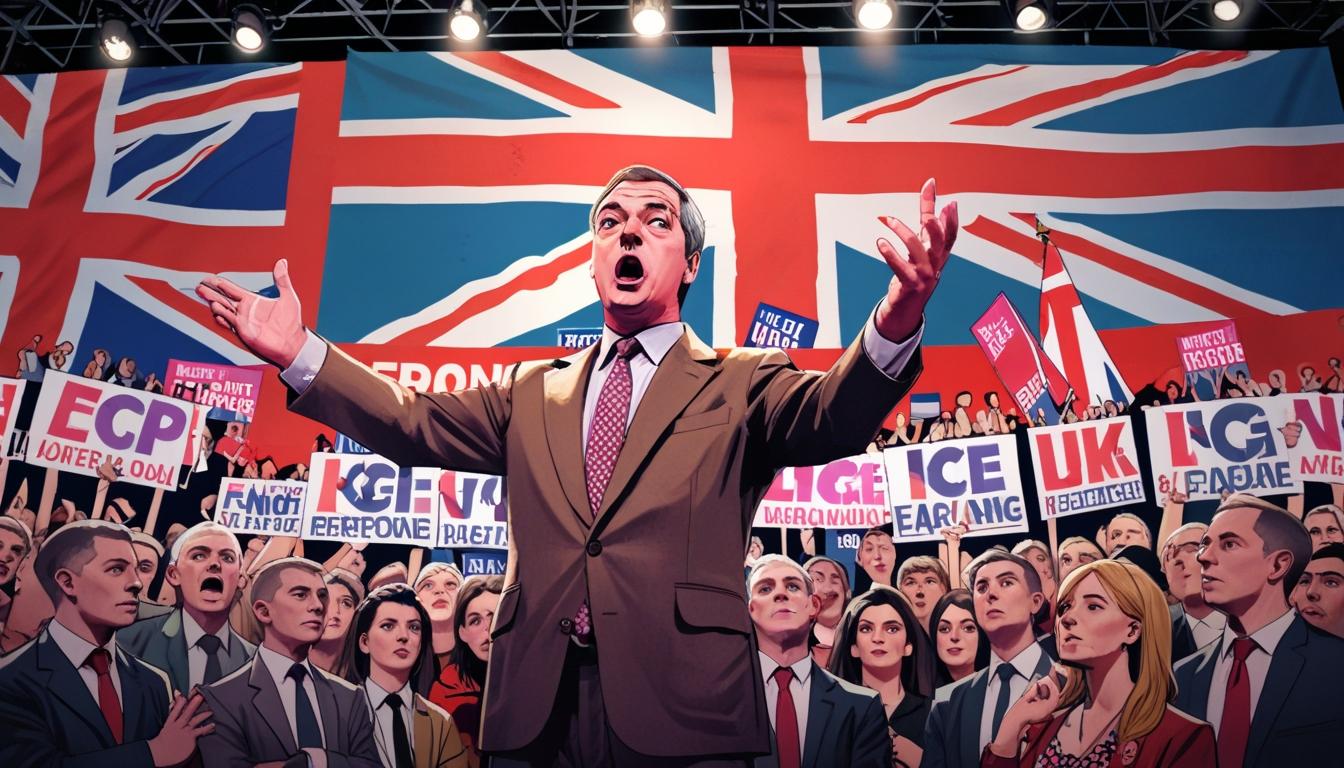As the political landscape in the UK shifts, Nigel Farage’s Reform UK party is garnering significant attention amid growing alarm from traditional political circles. The Conservative Party has warned that Farage’s proposed £140 billion in “giveaways” could lead to bankruptcy for Britain, signalling a clear sense of panic following the party's decline in recent polls.
Recent surveys indicate Reform UK leading the charge with 32 per cent of voter support, surpassing both Labour at 22 per cent and the Conservatives at a troubling 19 per cent. Local elections have illustrated this trend, with Reform UK capturing hundreds of council seats, including control of ten town halls, and winning key mayoralties in Greater Lincolnshire and Hull and East Yorkshire, alongside adding an MP through the Runcorn and Helsby by-election. Such gains reflect a significant public shift that traditional parties are struggling to comprehend and counter.
In a recent article, Farage expanded on his vision for government, pledging to raise the income tax threshold to £20,000 and abolishing inheritance tax for estates valued under £2 million. This platform aims to resonate with a financially strained populace, as he posited, “I will repay those who put their trust in me. I will not let the country down.”
However, Shadow Chancellor Mel Stride has fired back at Reform’s proposals, labelling them impractical and immediately warning that such financial manoeuvres would lead the nation toward "spiralling national debt." His claims are underscored by analyses from the Institute for Fiscal Studies, which have expressed scepticism over the viability of Farage's funding mechanisms. Economists have flagged discrepancies in the proposed plans that could amount to tens of billions of pounds annually, raising doubts about the party’s financial credibility.
Stride has been emphatic in his criticisms, asserting that the proposed income tax cuts would significantly deplete government revenues, diverting crucial funds from essential services, including the NHS, which relies heavily on taxation. He noted that every £100 increase in the tax-free allowance generates an estimated annual cost of £1 billion, while cutting corporation tax from 25 per cent to 15 per cent could create a financial black hole in public finances.
Moreover, Reform UK's manifesto suggests broad tax reductions not just for individuals but also for small businesses. The party proposes to introduce a corporation tax-free allowance and raise the VAT registration threshold significantly, putting additional fiscal pressure on already strained government revenues. Their radical economic policies aim to attract disenchanted voters, especially in dislocated communities, where Farage’s appeal has been pronounced. Notably, strengthening ties with former Labour strongholds has been a strategic manoeuvre that demonstrates his outreach to working-class citizens, aligning with their frustrations over economic stagnation.
Adding to the complexity of the situation, Labour leader Keir Starmer has acknowledged that the next election might be framed as a contest not just against the Conservatives but specifically against Reform UK. He has described the Tory Party as a “busted flush,” indicating a potential pivot in the opposition's strategy to account for the rise of a party once relegated to the fringes of UK politics.
As the political climate continues to evolve, the consequences of Farage's newfound prominence will likely reverberate through the UK's electoral framework, dramatically reshaping voter allegiances and party strategies. The uncertain financial implications of Reform UK's proposals serve as a reminder that while populist rhetoric may energise a constituency, the pragmatic realities of governance pose profound challenges.
The challenge now lies in how traditional parties adjust to this new dynamic and whether they can effectively communicate a vision that resonates with a changing electorate, disenchanted by the mainstream offerings.
Reference Map
- Paragraph 1: [1]
- Paragraph 2: [1], [6]
- Paragraph 3: [1], [2]
- Paragraph 4: [1], [2], [3]
- Paragraph 5: [1], [2], [5]
- Paragraph 6: [3], [6]
- Paragraph 7: [4], [7]
- Paragraph 8: [4], [7]
Source: Noah Wire Services
